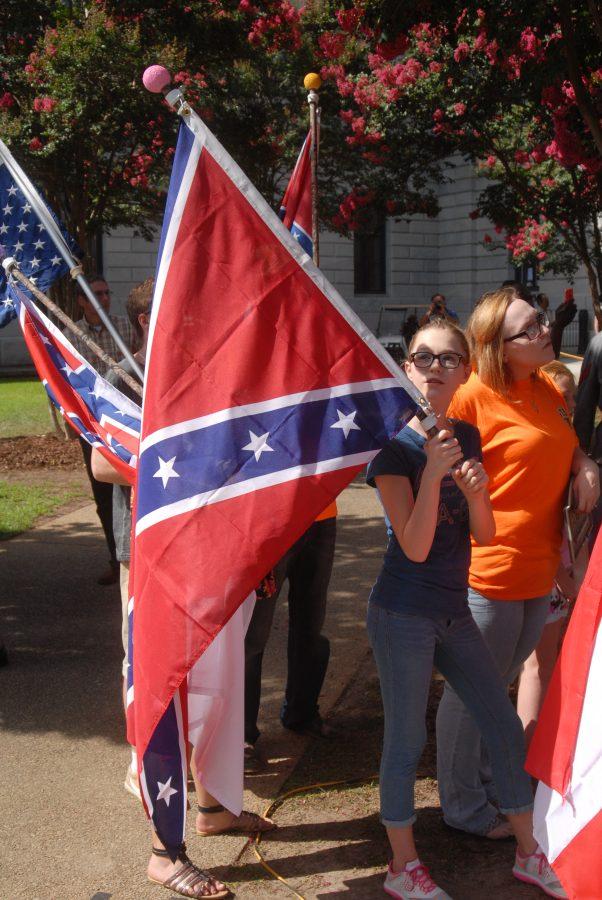Earlier this year there was a Church shooting in Charleston South Carolina. It was reported that the perpetrator, Dylan Roof, did the shooting to start a race war. In the shooting, Roof killed nine out of the 12 church members that attended Bible study that day. He had displayed his dislike for African Americans before: After the shooting, photos surfaced of Roof proudly displaying the Confederate flag alongside other symbols of white supremacy. Thus, it was brought to America’s attention how the Confederate flag was still flying high.
The debate over whether the Confederate flag was a symbol of racism or a symbol of history began. All over the Southern part of the United States, the controversial flag was a tug-of-war. Some states took it down and then later put it back up. This past summer Professor Robert Johnson, Chair of the Africana Studies Department at the University of Massachusetts Boston, went down to South Carolina to witness the flag coming down. On July 10, 2015 Columbia, SC had a ceremony where thousands of supporters and non-supporters came to witness the flag coming down in front of South Carolina’s State House.
“It was a very civilized event and certainly we were happy it happened, and a very beautiful summer day,” said Johnson. “ I felt relieved that a major symbol of racial oppression was taken down from the South Carolina capital. My mother and maternal grandparents were born in South Carolina so the lowering had special significance for that reason as well.”
Almost a week later as Johnson was still on his high of witnessing history turning in the right way, he arrived back in Boston and on July 16th, started to prepare for a family reunion by stopping at Centre Liquor Store to pick up a bottle of Cognac. Johnson payed for the bottle and left the store. Within the next 24 hours, two Boston Police Officers rang Johnson’s doorbell looking for him. They told him that he had to come to the District 13 station. After asking a few times the officers finally told Johnson he was getting brought in for larceny.
“When the guy said ‘larceny,’ I said, ‘You’ve got the wrong guy’ — I figured with a common name like mine, they just had it wrong.” Johnson was cooperative with the officers and went to the station to get this all fixed. “I just wanted to get it resolved so we could move along, and I didn’t want to alarm the neighbors. I’m the only black person in my building and on my street, so I was concerned about the police taking me out in handcuffs and all that stuff.”
Fortunately, once Johnson got to the station and was shown the picture of the suspect (who robbed the store back in March of this year), and after he pointed out all the obvious differences (age, weight, facial hair), he was set free. Johnson definitely feels that this was a case of racial profiling. Especially after seeing the obvious differences between the two African American men. All in one summer, within a week of each other, Johnson experienced history on both ends of the country.





















































